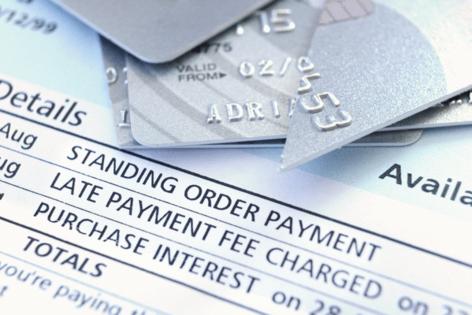Will CFPB's $8 cap on credit card late fees encourage late payments?
Published in Home and Consumer News
On March 5, the Consumer Financial Protection Bureau (CFPB) finalized a rule capping credit card late payment fees at $8 for the biggest card issuers after inviting public comment on the matter last year. According to the consumer protection agency, the move is an effort to rein in “excessive” credit card late fees.
“For over a decade, credit card giants have been exploiting a loophole to harvest billions of dollars in junk fees from American consumers,” Rohit Chopra, the CFPB’s director, said in a statement. “Today’s rule ends the era of big credit card companies hiding behind the excuse of inflation when they hike fees on borrowers and boost their own bottom lines.”
The rule will apply to the largest card issuers, which, according to the regulatory agency, have more than a million card accounts open and account for more than 95% of outstanding card balances. Smaller issuers tend to charge lower fees, the CFPB notes.
The CFPB said that, in 2022, late fees accounted for more than 10% of the $130 billion issuers charged customers on credit card interest payments and fees. As a result, the agency expects that the rule going into effect could save American families more than $10 billion a year by bringing down late fees to $8 from the $32 that’s typically charged currently.
While the CFPB expects the law to go into effect 60 days after it is published in the Federal Register, there is some talk of litigation against the agency to prevent the law from being implemented. Therefore, it is currently not clear if or when the rule will actually take effect — or when consumers will see relief from high late fees.
Late charges are not in line with collection costs
Currently, credit card late fees are capped at $30 for a first late payment and $41 for a second late payment within the next six credit card billing cycles. Issuers can charge higher late fee payments if they can justify that their late payment collection expenses merit higher late fee charges.
In line with the Credit Card Accountability Responsibility and Disclosure Act (CARD Act) of 2009, the Federal Reserve Board of Governors issued a regulation clarifying that card issuers were required to keep late fees in line with the costs they incur because of late payments. At that time, issuers could charge up to $25 for a first late payment and $35 for any subsequent late payments. These amounts have been adjusted for inflation annually to arrive at today’s cap of $30 and $41 on late fee payments. At the same time, card issuers have benefited from lower costs as they have moved to digital collection processes.
According to the CFPB, “many issuers hiked their late fees in lockstep each year without evidence of increased costs.” Considering this, the CFPB’s new rule will also eliminate the automatic annual inflation adjustment allowance. Instead, the regulatory agency will “monitor market conditions” annually and decide whether to raise the $8 safe harbor, or base rate, cap. Bigger card issuers can still charge a higher credit card late fee if they are able to justify it based on their costs.
Banking industry says late fee cap will raise cost of credit
...continued
©2024 Bankrate.com. Distributed by Tribune Content Agency, LLC.







Comments